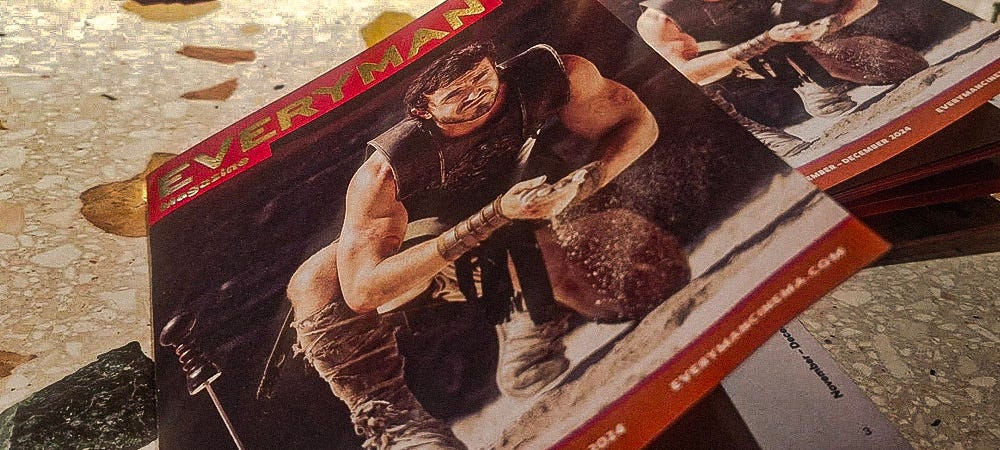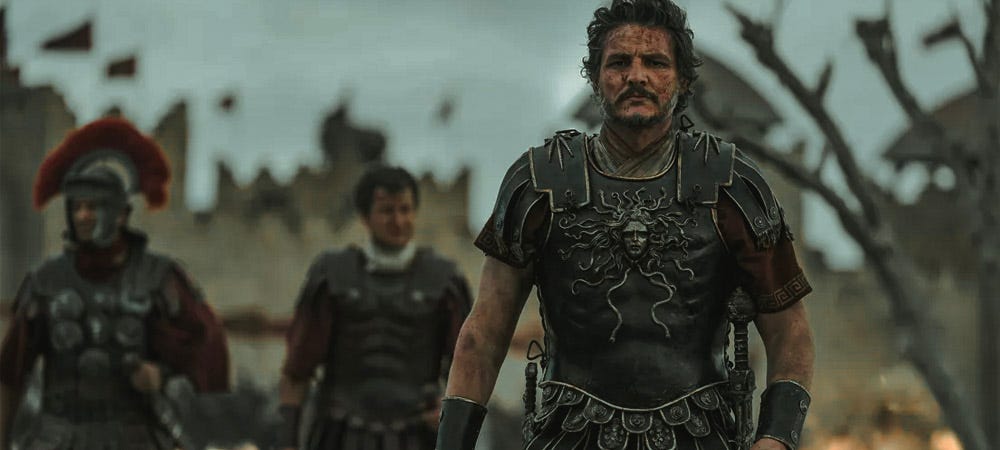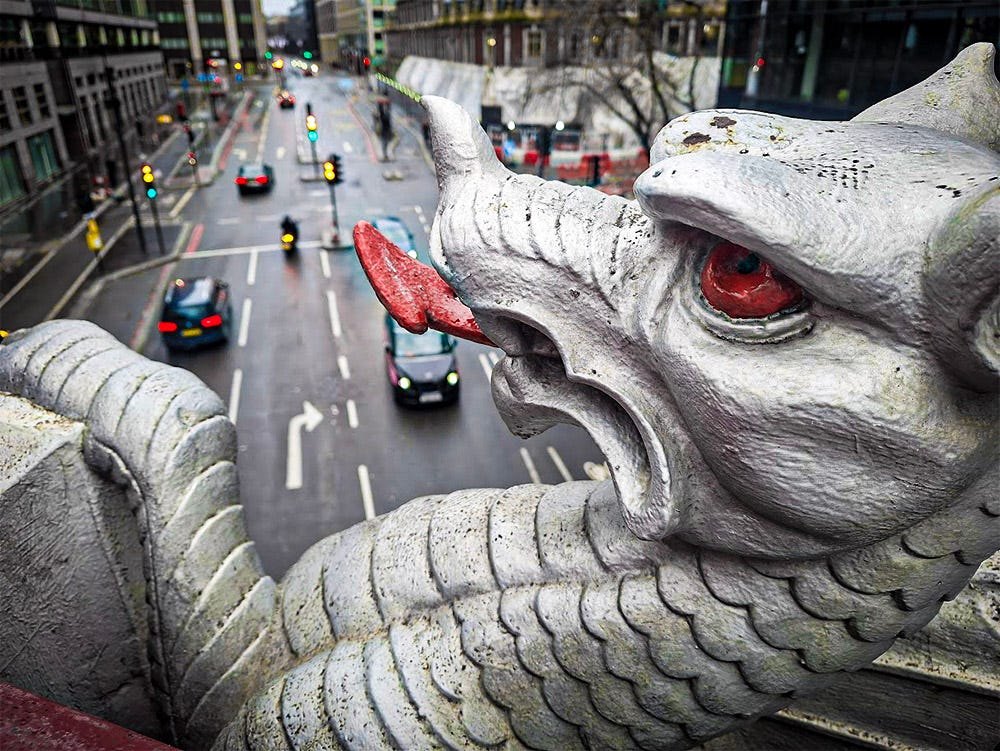[Spoilers for Gladiator II]
In Gladiator II’s climax, the protagonist Lucius, after defeating the villainous Macrinus in single combat, attempts to wax eloquent about “the dream of Rome”—an empire where all citizens are free and protected, an ideal metropolis that is home not only to the native-born but also to those without a home.
Ah, the dream of Rome! Something Marcus Aurelius believed in! Something for which Maximus fought and laid down his life!
The irony is that Lucius delivers this little speech standing between two massed armies of over 11,000 men who, minutes earlier, were a finger-snap away from butchering each other for...well, for a manic power fever dream.
Perhaps Gladiator II is overly comfortable in its arena. On a recent Reason Roundtable episode, the hosts toss up the idea that Wicked might be the last movie of the Biden-Harris Era—that its tenor of standing up for the marginalized and its co-stars’ often cringe-inducing media interviews are the backwash of the kind of culture a Harris administration would have continued to foster.1 On the other hand, they suggest that Gladiator II is the epitome of the Trump-nouveau Era; its power-hunger, acrimoniousness, clown-faced antics, and social warmongering map closely onto the social outlook the Trump aesthetic bequeaths to many of its subscribers. (Panem et circenses. In this economy, the bread might not be affordable but at least the circuses are!)2 In these extremes of socio-cultural vision, there are no dreamers or unions between opposites. There are only armies.
Still, I find potent the imagery of war-weary dreamers broadcasting their dreams to said armies.
It’s something I think about a lot as I wonder if anything can save our world from ourselves. In politics, activism, and the culture wars, those who embrace a scorched-earth approach (own the libs, silence is violence, burn it all down, lock ‘em all up, etc.) get a lot of support and a lot of conversational capital. Everyone’s ready to fight, to jump into the arena, to rage, to gun down a CEO in Manhattan. (Or to openly celebrate and/or grimly approve of such activities.3)
But none of that will save the world. It never has. It can’t now.
Yet, we have to believe that something will.
So, what do I dream of?
Self-sacrifice. Truth. Good stories. Beauty. A retreat from Politics-as-a-Way-of-Life. The death of thin paradigms and uninterrogated heuristics. Deep, experiential modes of learning, knowing, relating, and being. Enchantment. Laughter. The Prince of Peace.
But what good is speaking of these things to armies?
Thorny, imaginative, complicated stories get overlooked because they can’t be summarized in a TikTok video, weaponized in an op-ed, or reduced to a simplistic bludgeon of either the Right or the Left.
Beauty and tradition are mocked in favor of brutalism and thin, soulless artworks.
Experiential, relationship-based politics gets shouted down as naive and anti-realist. Being nice doesn’t bequeath power.
The Prince of Peace is met by an act of war. The blood of innocents lies in the wake of his arrival.
To armies, we speak of dreams.
Of dreams, we speak to armies.
To what end?
Gladiator II ends with an in-world question mark. We don’t know if Lucius’ dream of Rome is realized. We don’t know if all those soldiers who sheathed their swords at Lucius’ appeal found either the spiritual or social freedom they, at least temporarily, hoped for. For that matter, we don’t know if Lucius found his peace either.
I want to believe he did. I need to.
I need to believe that oft-despised hope can overcome the impulses of fear. That the weak whispers of beauty eventually win out over power-hunger and madness. That an infant prince is mightier than all the emperors of Rome. And that the foolish dreamers of this world can put armies to flight.
asides + signal boosts
📖 Reading: The Four Loves, by C.S. Lewis. And trying to finish Man’s Search for Meaning, by Victor Frankl. Trying not to get distracted by new books on Catholic visuals and the fairy tellers behind fairy tales.
- takes issue with a disturbing trend in fiction. Why are authors doing this?
Lovely reflections on Advent and the importance of theology for those who don’t study it from
.- on goodness being a “high quality” and grappling with that in fiction.
🎞️ Watching: Gladiator II and the visually lush Conclave.
🎧 Listening: Lauren Mayberry’s solo album Vicious Creature.
🔎 Exploring: the lovely, lusty city of London.
As I mentioned before, I loved Wicked. But if you’re the sort to look for messages in your media,
highlights here an aspect of progressive culture the film deftly mirrors.Obviously, don’t make the analogies work harder than they’re supposed to.







“Thorny, imaginative, complicated stories get overlooked because they can’t be summarized in a TikTok video, weaponized in an op-ed, or reduced to a simplistic bludgeon of either the Right or the Left.” This is just excellent. And thank you for the mention!
Thanks for the shout! To clarify I haven't seen all of that language applied specifically to this context, but it is Haywood's rhetorical MO.